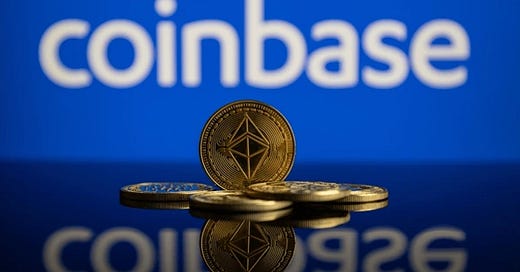Crypto Giant Faces Security Crisis
Fed Eyes Inflation Volatility Ahead and Japan Sees Record Investment Inflows
CRYPTO
Crypto Giant Faces Security Crisis
Coinbase (COIN) has confirmed a serious data breach after rogue support agents were bribed by cybercriminals to share customer information. The attack compromised sensitive data, including names, addresses, masked social security and bank account numbers, and even government ID images. This breach was first highlighted by blockchain investigator ZachXBT, who estimated that users had lost $300 million in related scams.
Coinbase stated that it will fully reimburse affected customers and expects to spend between $180 million and $400 million in remediation and reimbursements. The compromised employees were immediately terminated, and the case has been handed over to U.S. and international law enforcement. CEO Brian Armstrong revealed that he received a $20 million ransom demand in Bitcoin, which he rejected.
Coinbase emphasized that no two-factor authentication codes or private keys were accessed. The company has offered a $20 million bug bounty for leads and vowed to pursue criminal charges. Coinbase shares dropped over 4%.
ECONOMY
Fed Eyes Inflation Volatility Ahead
Federal Reserve Chair Jerome Powell warned that the U.S. economy could face more frequent and lasting supply shocks, complicating inflation control efforts. Speaking at a Fed policy conference, Powell noted that inflation might become more volatile, requiring higher real interest rates. Every five years, the Fed reviews its policy framework to maintain full employment and stable prices.
Powell reflected on the 2020 strategy, which aimed for moderate inflation overshoots—plans that were derailed by the pandemic. Inflation soared to 9.1% in 2022, prompting rate hikes. Surprisingly, unemployment stayed low despite rising rates. Powell called this “a historically unusual” outcome.
Looking ahead, he said the new strategy will factor in these changes but emphasized that anchoring long-term inflation expectations remains critical. If people trust inflation will stay low, they keep spending, which stabilizes the economy. Powell credited anchored expectations for enabling post-pandemic recovery without a major jobs crisis, supporting long periods of economic growth.
FINANCE
Japan Sees Record Investment Inflows
In April, Japan saw an unprecedented $56.6 billion in foreign inflows into its equities and long-term bonds, driven by investors pulling out of U.S. markets following Trump’s tough trade rhetoric. Most of that money poured in early April, just after the U.S. announced new tariffs. As Treasury yields in the U.S. surged, Japan’s fell—making Japanese assets more appealing.
The Nikkei 225 climbed slightly, while the S&P 500 dipped, showing how investor sentiment shifted fast. Institutional players like pension funds and reserve managers led the charge, looking for safety and stability. I see this as a temporary pivot driven by policy uncertainty in the U.S. While the Fed and White House try to restore confidence, Japan benefits not just from being a perceived safe haven but also from recent corporate governance reforms aimed at boosting shareholder value. Even if the April inflows cool down, Japan could keep gaining investor interest in the months ahead.
DISCLAIMER: None of this is financial advice. This newsletter is strictly educational and is not investment advice or a solicitation to buy or sell any assets or to make any financial decisions. Please be careful and do your own research.



